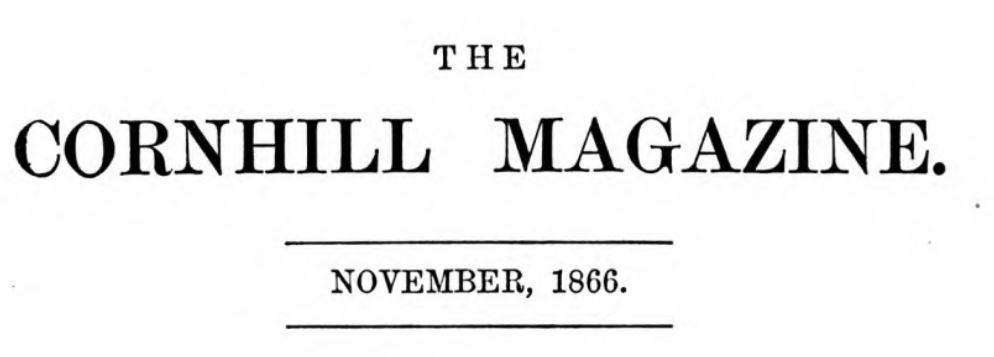Translyvania
- [writer unknown]
- Essay
- Nonfiction
- Adults
- Definite Time Travel
- English
- Translyvania [writer and director unknown] writer], in The Cornhill Magazine, November 1866.
The November 1866 issue of The Cornhill Magazine had a travelogue about Transylvania with an early use of the phrase “travel through time,” perhaps the first use of the phrase.
—Michael Main
This charm of travelling would become perfect if we could travel in time as well as in space—if, like a character in one of Andersen’s fanciful stories, we could sometimes take a fortnight in the fifteenth century, or, still more pleasant, a leap in to the twenty-first. It is possible to accomplish this object more or less in imagination—not by reading historical novels, in which characters are always obtrusively reminding us of their nineteenth-century origin—but by a journey beyond the reach of railways and newspapers. Those are the links which always bind us down offensively to the present. The scream of an engine or a sheet of The Times carries us forcibly back to London from the ends of the earth. It is the rattling of the chain which reminds us that we are, after all, prisoners to certain conditions of space and time. But once beyond their influence we can shake ourselves fairly free. It is possible, indeed, to make “the forward flowing tide of time” recede a little too far. Sir Samuel Baker, when he was in the kingdom of Katchiba, must have felt that he was almost in a geological epoch. He was back in the period when, according to Mr. Darwin, man was just emerging out of the gorilla and learning to walk upon his hind legs. But a leap backwards for a century or two would be intensely enjoyable; and to those who can appreciate it, that is precisely the pleasure obtained by a journey in Transylvania.

Variants
(1)
- Translyvania [writer and director unknown] writer], in The Cornhill Magazine, November 1866.. . . . . . . . . . . . . . . . . . . . . . . . . . . . . . . written by unknown persons [uncredited]
